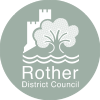These inspections are carried out in accordance with the Code of Practice for England issued by the Food Standards Agency.
Inspections have three main aims:
- To offer advice about good food hygiene practices
- To identify and prevent risks to public health
- To investigate possible breaches of food hygiene legislation and to take any necessary action as to get the business legally compliant
Inspection procedure
Our officers have a right to enter and inspect a food business, including mobile units, at all reasonable hours. They do not need to make an appointment and usually call without one.
They have the power to inspect your premises and food, examine records (including computerised records), to seize food and take samples and photographs that may be used as evidence.
Where appropriate officers will want to see and discuss your Food Safety Management Systems and the records to support its operation, such as temperatures, cleaning schedules, stock control, training and traceability.
Your staff may be asked about operations they perform at work. All areas associated with the business may be checked including storage areas and preparation areas. Cleanliness and repair standards of the premises, facilities and equipment will be assessed. Evidence of pest control and correct refuse disposal may also be examined.
After the inspection
Officers will discuss their findings with the person in charge. A report of the visit will then be given to the Food Business Operator. The report will specify those statutory requirements that are not being complied with and what action must be taken to comply with the law. In addition, recommendations and advice on good practice may be included but will clearly separated from legal requirements. For more information on what you can expect from our officers please view our Environmental Health Service Standards.
Where practices or conditions are not satisfactory, every attempt will be made to resolve the situation by informal means. Where poor conditions persist, or where there is a risk to public health it may be necessary to take a more formal route which could result in the service of notices requiring improvements or prohibition of certain activities.
All enforcement actions are taken in accordance with the Regulators Compliance Code 2009 and our own Environmental Health Enforcement Policy.
Revisits
For significant contraventions of law, a revisit or several revisits may be needed to ensure progress on remedial works.
Inspection frequency
The frequency of inspections of food premises is based on risk. Some food premises and businesses present a higher risk to the consumer than others. This depends on factors such as the nature of the food, the degree of handling, the size of the business and of course how well the business is run. Those premises posing a higher risk to the consumer should be inspected more frequently than those premises with a lower risk.
Food premises are inspected within the range of at least every six months to at least every three years. These are only minimum inspection frequencies and local authorities may carry out more frequent inspections where appropriate.
Contact Rother and Wealden Environmental Health Service
Email: foodhs@rother.gov.uk
Telephone: 01424 787550
Fax: 01424 787547
Address:
Environmental Health,
Town Hall,
Bexhill-on-Sea,
TN39 3JX

